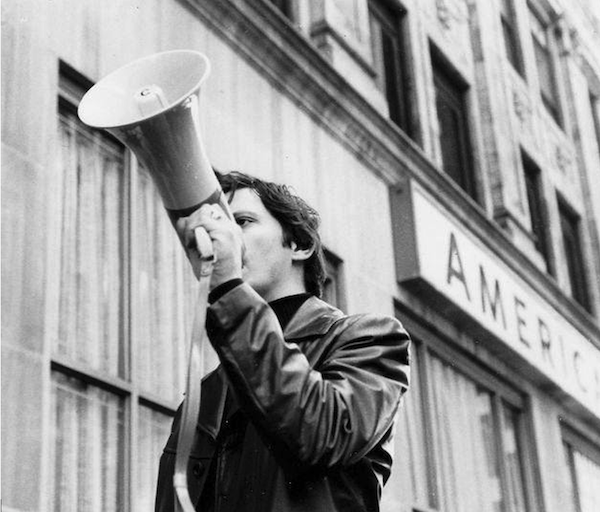Restoring Martin Luther King Jr.’s Legacy
by Eric Poulos
On Martin Luther King Jr.’s birthday, politicians will laud him as a “dreamer.” From their pulpits clergy will praise him as a man of God. Corporate executives will cite his name while praising themselves for hiring people of color. And retailers will promise bargains.
But those celebrations will, intentionally or not, miss the meaning of Martin’s contributions and the cause for which he gave his life.
Through non-violent resistance Dr. King combatted what he called the three evils of American society: militarism, racism and poverty.
He possessed the courage to speak out when others wouldn’t.
Speaking against the immoral war in Vietnam he was denounced by the entire liberal establishment, including civil rights leaders and The New York Times. He pronounced the United States “the greatest purveyor of violence in the world” (Riverside Church, 04/04/67). Although celebrated as a Nobel Prize winner and a guest of the White House, he was willing to forego those comforts and adulations for a principle. He remained with the Movement in the streets and never sought to co-opt it to the boardroom or politicians.
Dr. King emphasized that the struggle for civil rights must extend to economic rights. In 1968 he organized the Poor People’s Campaign, furthering his belief that: “Something is wrong with capitalism. There must be a better distribution of wealth and maybe America must move toward a democratic socialism” (Speech to SCLC staff, 1966).
In solidarity with working women and men he went to Memphis to support the sanitation workers strike: An action that cost him his life.
And yet on his birthday we will search in vain the newspapers, TV and radio for that Martin Luther King Jr.
If Martin were alive he’d be active in the Black Lives Matter (BLM) demonstrations, lend his mighty voice to the $15/hour campaign, proclaim impassioned expressions of support to the rights of immigrants, and deliver eloquent exhortations for the full equality of women and other human rights.
There is no doubt that he would be leading the protests against those whose “lips drip with nullification” (I Have a Dream speech, 08/28/63) such as Trump, McConnell, Proud Boys, etc., those who attack the Capitol and those who likewise attack the civil rights of people of color.
Like many others, I was privileged to have marched with, and heard Dr. King speak. For most of my conscious life I have carried that memory, hope and activism in the socialist, civil rights, anti-war, labor, immigrant rights, Occupy Wall Street, BLM and anti-Golden Dawn (Greek fascist) movements.

All these movements are one river that flow from Dr. King’s teachings:
“Injustice anywhere is a threat to justice everywhere” (Letter from a Birmingham Jail, 04/16/63).
Eric Poulos
lives in New York City where he is a public defender.
